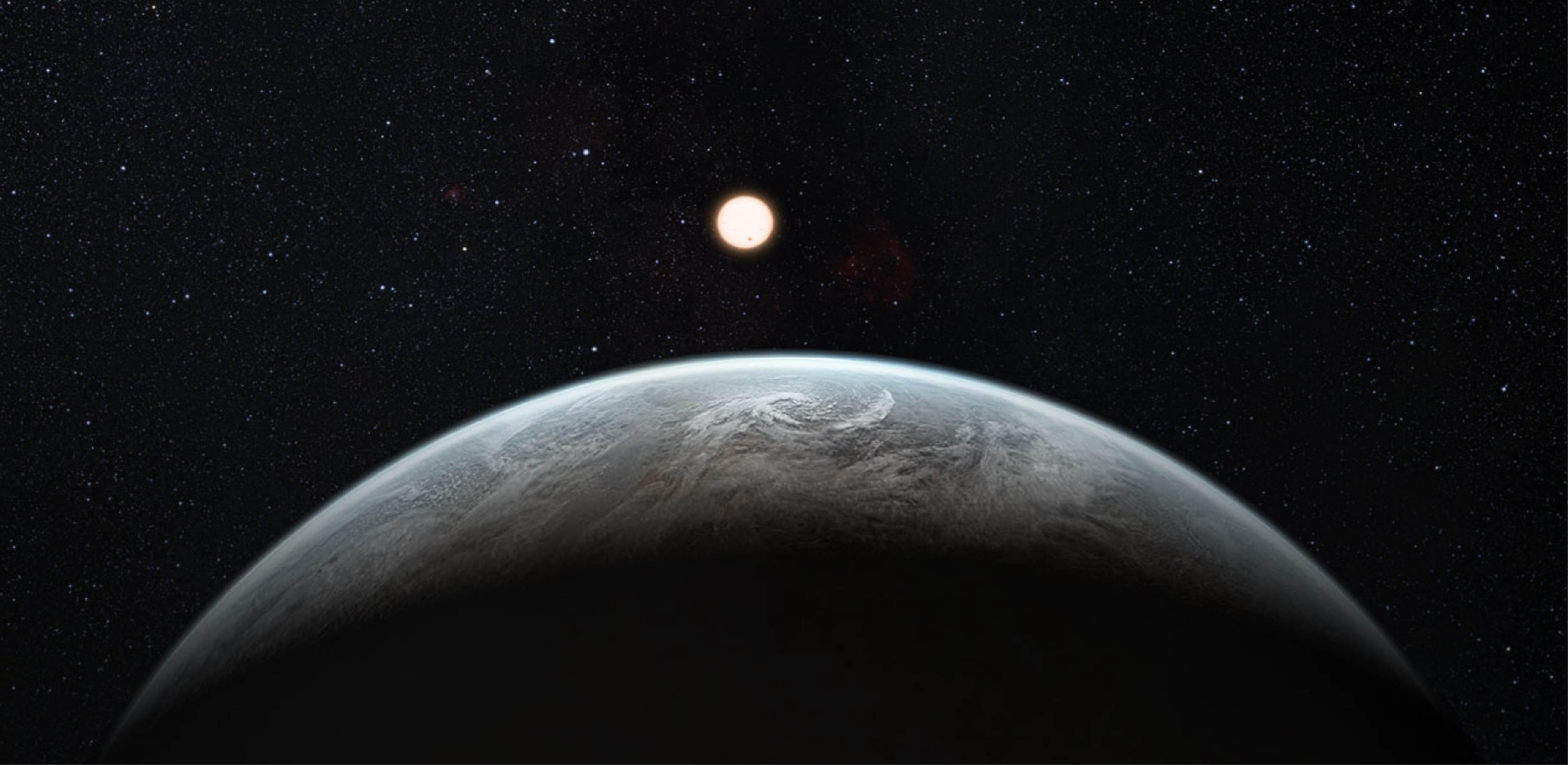
Submitted by Dr C.M. Martin-Jones on Mon, 10/01/2022 - 15:14
For the first time, addressing some of humanity's most fundamental questions on the origin and nature of life in the Universe is within the grasp of modern science. With a £10 million grant awarded by the Leverhulme Trust, the University of Cambridge is to establish a new interdisciplinary research centre dedicated to life in the Universe and led by 2019 Nobel Laureate Professor Didier Queloz.
The Department of Earth Sciences will be one of the lead institutions behind the new centre, together with researchers from Cambridge’s Cavendish Laboratory, Yusuf Hamied Department of Chemistry, Department of Applied Mathematics and Theoretical Physics, Institute of Astronomy, Department of Zoology, Department of History and Philosophy of Science, Faculty of Divinity, and the MRC Laboratory of Molecular Biology.
Thanks to simultaneous revolutions in exoplanet discoveries, prebiotic chemistry and solar system exploration, scientists can now investigate whether the Earth and the processes that made life possible are unique in the Universe.
The University of Cambridge has recently launched the Initiative for Planetary Science and Life in the Universe (IPLU) to enable cross-disciplinary research on planetology and life in the Universe. It aims to establish the infrastructure needed to allow scholars from different disciplines to pursue such interdisciplinary research.
Building on IPLU’s activities, the new Leverhulme Centre for Life in the Universe will support fundamental cross-disciplinary research over the next 10 years to tackle one of the great interdisciplinary challenges of our time: to understand how life emerged on Earth, whether the Universe is full of life, and indeed to ask what is the nature of life.
“The Centre will act as a catalyst for the development of our vision to understanding life in the Universe through a long-term research programme that will be the driving force for international coordination of research and education.” said Queloz, Jacksonian Professor of Natural Philosophy at the Cavendish Laboratory and Director of the Centre.
Research within the Centre aims to develop a deeper understanding of life, its emergence, and its distribution in the Universe, and will focus on four themes (1) identifying the chemical pathways to the origins of life, (2) characterising the environments on Earth and other planets that could act as the cradle of prebiotic chemistry and life, (3) discovering and characterising habitable exoplanets and signatures of geological and biological evolution, and (4) refining our understanding of life through philosophical and mathematical concepts.
Expertise within the Centre is further broadened with collaborators at the University of Colorado Boulder, University College London, ETH Zurich, Harvard University and the Centre of Theological Inquiry in Princeton, New Jersey.
Earth Sciences at Cambridge will play a key role in the initiative, “The search for life in the universe is critically dependent on our understanding of how planets work: from their deep interiors to their surface environments and surrounding atmospheres. The Earth sciences will therefore play a pivotal role in this endeavour, and the Department is thrilled to be part of the Leverhulme Research Centre,” said Professor Richard Harrison, who heads the Department of Earth Sciences.
Researchers from across the Department are set to benefit from the new collaborations and expertise the project will bring, “We are all incredibly excited that the IPLU initiative has been awarded this prestigious Leverhulme grant,” said Dr Helen Williams, who is Reader in Geochemistry and one of the IPLU project partners. “We will be able to address one of the most fundamental research questions of our time: how did life originate in the Universe and is life supported on planets beyond our solar system? This kind of frontier research is truly risky but the potential rewards could have a huge impact on how humans and Earth relate to life in the Universe as a whole.”
Dr Oliver Shorttle, who is a Lecturer jointly based between Cambridge’s Department of Earth Sciences and Institute of Astronomy said, “The Leverhulme Trust funding will allow us to create and support a unique cross disciplinary community from the humanities and sciences investigating life’s origins and place in the Universe.”
According to Nick Tosca, Professor of Mineralogy and Petrology, “Earth Science is integral to understanding the origins of life on our planet as well as the capacity of other planets to support life. However, in order to truly understand what life is, how it originated, and where else it may be in our Universe, Earth scientists need to work closely with organic chemists, astrophysicists, biologists, as well as with scholars in philosophy and divinity.”
